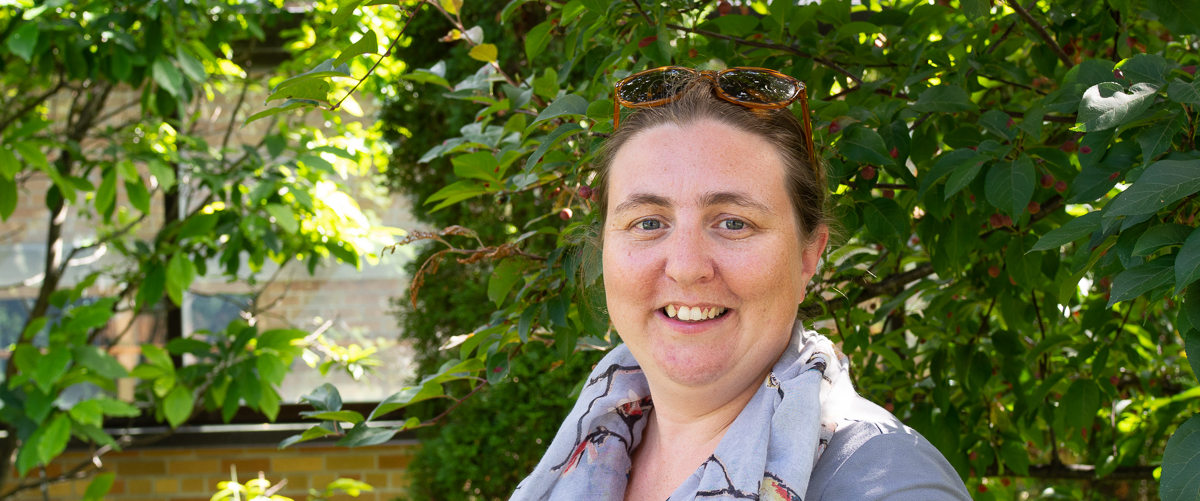This interview was originally featured in our Fall 2019 edition of Community Matters.
As executive director of Sustainable Eastern Ontario (SEO), Kristina Inrig spends her time creating and nurturing partnerships to support sustainability activities. Her focus is squarely on the future. Working with the Ottawa Community Foundation (OCF), Kristina established several funds to support the long-term goals of organizations she has led and supported. In a recent interview, Kristina shared her thoughts on how organizations can achieve their long-term vision.
What motivated you to want to lead and support sustainable initiatives?
I’ve been involved in the movement my whole life. I grew up on the Rideau River, so the natural environment was always important to me. I founded an organization called Help our Only Planet when I was 10 years old. We collected garbage and organized bike-a-thons in my neighbourhood. When I finished my undergraduate degree, I went back to an environment focus. Sustainability is really where my heart is.
How did Sustainable Eastern Ontario get started and what is its mission?
I started my career in the environmental sector as the executive director at Tucker House, a space that inspires sustainable living through education, collaborative leadership for sustainability, and eco-spiritual retreats. We launched the National Capital Environmental Non-profit Network, which was first funded by the OCF 10 years ago. We wanted sustainability organizations like Ecology Ottawa, Peace & Environment Resource Centre (PERC), Ottawa Biosphere Eco-City, and others to communicate and work together. By doing so, it helped with volunteer recruitment, governance and other priorities. The project began to take on a life of its own and eventually it led to the creation of SEO.
Today, we connect sustainability groups, develop strategic collaborations across the sector, build capacity of administration and operations, and celebrate successes covering the region.
What was your motivation to work with the Ottawa Community Foundation?
I see the benefit of working with OCF for many different organizations. This was especially the case when I was looking at our long-term goals for Tucker House and I was considering how an endowment fund could help us. By working with the OCF, we would have a trusted partner that the community knew and respected and we wouldn’t have to manage the money ourselves.
Eventually, we also worked with the OCF to create a fund for the PERC. When a bequest came in, we were able to protect it by adding it to an endowment fund to look after the Centre’s long-term needs.
SEO now has a donor-advised fund to receive donations and a flow-through fund to address short-term impact projects with local groups. This year, we will be funding several capacity-building projects for local organizations. With a tool like this, it makes it easier to have conversations with people who want to support us. In fact, a donor recently left the organization a significant donation in their will.
What does the future look like when you think of sustainability?
Our strength as a sector is based on how collaborative we can be. Groups are working closely together, which can help us address sustainability issues. The OCF can also make a difference by playing a convening role and bringing different stakeholders together to tackle critical issues. The new Low Carbon Cities Canada (LC3) Urban Climate Centre being created by the OCF is a great example.
We also want to connect with groups from outside the usual circles. That must be a defining shift in Ottawa. How do we engage all groups on sustainability issues? All of us need to find ways to integrate sustainability into our lives in a meaningful way.
What advice would you give other organizations who want to secure their future?
Every organization’s needs are different. When you can stop thinking about having enough funds for your annual operations and are able to start thinking about the future, an endowment fund is a good option. The minimum requirement is $5,000 (The OCF allows an organization to raise this over several years), which is very achievable for small organizations. You have a lot of time to grow it, and you have a trusted organization like the OCF that can receive and manage donations.

